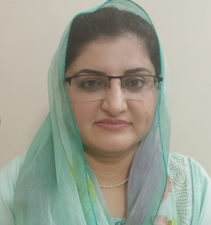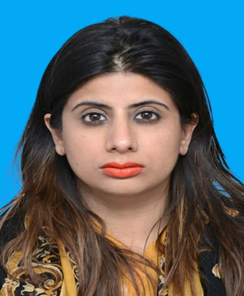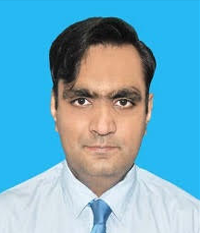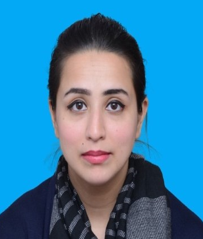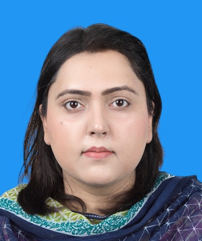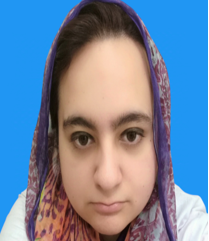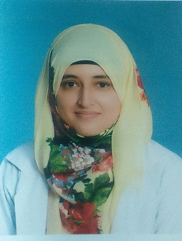Department of Science of Dental Materials
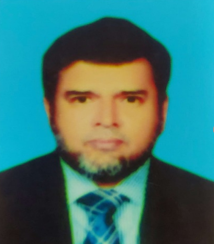
Message from the HOD
Introduction
The Department of Dental Materials at the Army Medical College provides foundational pre-clinical training for undergraduate dental students. It offers comprehensive knowledge of biomaterials, covering their composition, properties, manipulation, and clinical applications. The curriculum combines theoretical instruction with hands-on lab experience, enabling students to critically evaluate and select appropriate materials for various dental procedures, with a focus on biocompatibility, material science innovations, and evidence-based choices.
Faculty are actively involved in curriculum development, research, and interdisciplinary collaboration. Beyond undergraduate education, the department also offers Master of Philosophy (MPhil) and Doctor of Philosophy (PhD) programs and contributes to national efforts in standardizing dental material usage. The department aims to produce clinically competent, ethically grounded professionals who can adapt to evolving material technologies and contribute to patient care and academic advancement.
Outline of the Course
Course Title: Science of Dental Materials
Program: Bachelor of Dental Surgery (BDS)
Year: II
Course Description:
This course provides second-year BDS students with a foundation and integrated understanding of the materials used in dentistry. It covers the essential physicochemical, chemical, thermal, and rheological properties of various dental materials, emphasizing their clinical applications in preventive and restorative dental care. The curriculum is designed to foster practical skills and a critical approach to material selection and manipulation, integrating foundational sciences with clinical relevance for holistic patient care.
Course Content:
The course content is delivered across three integrated blocks:
Block I: Dental Health & Dental Cariology
- Dental Materials: Understand material properties (adhesion, mechanical/chemical/thermal/physical principles), distinguish abrasion/erosion/abfraction/attrition, consider biological factors, and practice basic manipulation.
- Gypsum Products: Learn classification, chemistry, properties, crystalline structure, setting reactions, and uses. Gain practical skills in cast fabrication and mixing.
- Dental Waxes: Study classification, properties, and uses; practice applications and manipulation.
- Amalgam: Classify by composition, understand setting mechanisms, trituration, mercury-alloy ratio, and hazards. Practice dispensing, trituration, and application.
- Cements, Liners & Bases: Grasp terminology, properties, setting, and applications of dental cements. Learn about temporary restoratives, ART, and the Sandwich Technique. Manipulate various cements.
- Dentifrices & Fluoride Agents, Pit & Fissure Sealants: Understand composition, properties, and applications of sealants, dentifrices, mouthwashes, and fluoride agents.
Block II: Oral Disease Management I & II
- Composites: Learn components, classification, properties, and applications. Practice identification and manipulation.
- Adhesion & Bonding: Grasp concepts of bonding, enamel/dentine bonding, generations, smear/hybrid layers, acid-etch, and ideal characteristics.
- Synthetic Polymers: Define types, composition, and ideal properties of denture base materials. Understand clinical processing, care, and polymerization. Practice acrylic manipulation.
- Denture Base Polymers & Liners: Explore properties and classification of acrylic denture base materials. Learn relining/rebasing, tissue conditioning, and repair materials. Practice acrylic manipulation.
- Artificial Teeth: Understand acrylic denture fabrication, compare heat/self-cure acrylic, and compare artificial teeth types.
- Impression Materials: Study ideal properties, classification, characteristics of elastic/non-elastic materials, hydrocolloids, elastomers, and manipulation. Practice dispensing and handling various impression materials.
Block III: Medical & Dental Healthcare, Evidence-Based Rehabilitation
- Metals: Learn metallurgy basics, types of metals/alloys, casting, and stainless steel applications. Understand orthodontic wires. Practice alloy-phase diagrams and wire manipulation.
- Resin-modified Glass Ionomer Cements (RM-GIC): Understand composition and properties of RMGIC, and compare Giomers and Compomers.
- Casting: Learn investment and casting steps, factors affecting casts, defects, and shrinkage compensation. Practice casting procedure identification and PFM crown fabrication.
- Ceramics/Porcelain-Fused Metal Crowns: Understand chemistry, classification, fabrication procedures, bonding, and strengthening methods. Practice identification and construction steps.
- Investment Materials: Know requirements, classification, composition, setting reaction, and properties. Practice identification and casting defects.
Recommended Textbooks and Materials:
- Philips Skinner's Science of Dental Materials
- M. Cabe Dental Materials
Course Outline for M.Phil. in Science of Dental Materials
The M.Phil. program in the Science of Dental Materials, offered by the National University of Medical Sciences (NUMS) at the Army Medical College, is designed to prepare professionals in the field of dental materials. It's an integrated curriculum that combines foundational sciences with clinical applications, aiming to improve teaching faculty in the basic sciences of dentistry and foster professionals who can develop innovative dental technologies and solutions. The program provides a strong foundation in biomaterials and covers topics related to the general properties and characterization of materials.
Course Details
- Degree Title: Master of Philosophy in Science of Dental Materials
- Program Duration: 1.5 to 4 years
- Total Credit Hours: 34
- Core Courses: 24 Credit Hours
- M.Phil. Thesis Research: 10 Credit Hours
Prerequisites for Admission
- A BDS degree or equivalent from a recognized institution.
- Valid registration with the PMDC.
- A minimum of 16 years of education in a relevant discipline.
- A minimum score of 50% on the NTS-GAT or HEC-recognized GRE test.
- Passing the NUMS interview.
Course Topics
The curriculum is structured across several semesters, with a focus on core courses and research.
First Semester (12 Credit Hours)
- Biocompatibility of Dental Materials (DNM-711): This course covers the determination of biocompatibility and its application to various dental materials, including dental amalgam, resin-based composites, cements, ceramics, root canal filling materials, dental alloys, and polymethylmethacrylate resins.
- Tissue Engineering (DNM-712): Topics include biomaterials for oral and dental tissue engineering, with a focus on polymers and biocomposites. It also covers tissue engineering strategies, such as scaffold design, stem cells, and growth factors, as well as oral and craniofacial hard and soft tissue engineering.
- Dental Materials-I (DNM-713): This course provides an overview of preventive and restorative materials, including their physical, chemical, and mechanical properties. It also delves into metallurgy, covering casting alloys, wrought metals, and casting procedures. Auxiliary materials like impression materials, gypsum products, dental waxes, and materials for cutting, finishing, and polishing are also covered.
- Imaging and Characterization (DNM-714): This course introduces modern techniques like artificial intelligence in dentistry and data interpretation. It focuses on various microscopy techniques (optical, electron, scanning probe, confocal), spectroscopy (IR, UV-Vis, X-ray), particle size distribution analysis, and chromatographic techniques for material characterization.
Second Semester (12 Credit Hours)
- Dental Materials-II (DNM-721): The course covers adhesion and bonding agents, as well as direct restorative materials like resin-based composites, dental cements, and dental amalgam. It also includes indirect restorative materials, such as dental ceramics, and dental polymers.
- Advanced Topics in Dental Materials (DNM-722): This course explores emerging technologies and the aging of various dental materials, including biomaterial surface alterations, resin-based composites, dental amalgam, and glass ionomer cement. It also covers the mechanical stability of resin-dentin interfaces, modeling bond strength tests, and the use of digital technology in dentistry.
- Biomaterials (DNM-723): The course covers the basics of biomaterials, polymeric biomaterials (natural and synthetic), metallic biomaterials (including osseointegration and dental implants), bio-ceramics (polycrystalline, bioactive glasses, calcium phosphates), and composite biomaterials.
- Research Methodology and Biostatistics (RMS-724): This course introduces the principles of epidemiology, research, and statistical methods. It covers study designs, literature review techniques using databases like PubMed and Google Scholar, data types and presentation, descriptive and inferential statistics, sampling techniques, and research ethics. It also includes hands-on training with SPSS for statistical analysis.
Third and Fourth Semesters
These semesters are dedicated to research work and the MPhil thesis, for a total of 10 credit hours.
Required Textbooks and Materials
- For Biocompatibility: Biocompatibility of Dental Materials by Gottfride Schmalz & Dorthe Arenholt.
- For Tissue Engineering: Biomaterials for Oral and Dental tissue engineering by Lobat Tayebi and Principles of Tissue Engineering by Robert P. Lanza.
- For Dental Materials I & II: Applied Dental Materials by John F. McCabe & W.J. Walls; Dental materials and their selection by William J.O' Brien; Introduction to Dental Materials by Richard Van Noort; Restorative Dental Materials by R.G. Craig; Phillip's Science of Dental Materials edited by K.J. Anusavice; and Materials Science for Dentistry by B.W. Darvell.
- For Imaging and Characterization: Practical materials characterization edited by M. Sardela; Materials characterization by Y. Leng; X-ray Characterization of Materials edited by Eric Lifshin; and Handbook of materials characterization edited by S. K. Sharma et al.
- For Advanced Topics: Dental Biomaterials Imaging testing, and modeling by Richard Curtis & Timothy Watson; Phillip's Science of Dental Materials edited by K.J. Anusavice; and Dental Materials in vivo by George Eliades.
- For Biomaterials: Biomaterials - Introduction by Joon Park & R.S. Lakes; Handbook of Oral Biomaterials by Jukka P. Matinlinna; Biomaterials for Oral and Dental Applications by Lobat Tayebi; and Nano biomaterials in Clinical Dentistry by Shin-Woo Ha & Daiana Weiss.
- For Research Methodology and Biostatistics: Research Methodology: Methods and Techniques by C.R. Kothari; The Craft of Research by Wayne C. Booth; and several biostatistics books.
Course Outline for Ph.D. in Science of Dental Materials
This Ph.D. program in Science of Dental Materials is an integrated program that merges various fields like Organic and Inorganic Chemistry, Material Science, Microbiology, Tissue Engineering, and Biocompatibility. The curriculum is designed to provide students with in-depth knowledge and advanced research skills, preparing them to develop innovative dental technologies and solutions. The program is offered by the Department of Science of Dental Materials at the Army Medical College, a constituent college of the National University of Medical Sciences (NUMS).
Course Details
- Degree Title: Doctor of Philosophy in Science of Dental Materials
- Program Duration: 3-8 years
- Total Credit Hours: 48
- PhD Courses: 18 Credit Hours
- PhD Research: 30 Credit Hours
- Number of Students Enrolled: 2 students annually
Prerequisites for Admission
- Academic Requirements: A BDS or an equivalent degree with a First Division or a CGPA of 3.0/4.0 in the semester system is required. Alternatively, an MPhil or FCPS degree in a relevant discipline with the same academic standing is acceptable.
- Registration: Valid registration with a regulatory body is mandatory.
- Entry Test: A university entry test recognized by HEC with a minimum qualifying score of 65% is required.
- Merit Calculation: The final merit list is based on a weighted score from previous academic scores (25%), entry test score (25%), Academic Statement of Purpose (25%), and interview (25%).
Course Topics
The curriculum is structured across several semesters, with a focus on advanced coursework and extensive research.
First Semester (9 Credit Hours)
- Advanced Research Methodology and Biostatistics (BMR-811): This course focuses on developing research skills, including study design, data analysis using SPSS, and ethical considerations in research.
- Chemistry and Characterization of Biomaterials (DEN-811): Provides an overview of chemistry principles relevant to dentistry and practical knowledge of various material characterization techniques like microscopy and spectroscopy.
- Advanced Concepts in Tissue Engineering and Emerging Technologies (DEN-812): This course provides an understanding of tissue engineering principles and their applications in clinical dentistry. It covers topics such as biomaterials for tissue engineering, scaffold design, stem cells, and gene editing tools.
Second Semester (9 Credit Hours)
- Advanced Dental Materials (DEN-821): This core course provides in-depth knowledge of various dental materials, including their composition, properties, and manipulation techniques. Topics include resin restorative materials, cements, ceramics, and nanotechnology.
- Elective Courses: Students must select any two of the following elective courses with the guidance of their supervisor.
- Adhesion and Bonding in Dentistry (DEN-822): This course provides detailed knowledge on bonding dental materials to enamel, dentin, and cementum, covering various adhesion mechanisms and bond strength testing.
- Aging in Dental Biomaterials (DEN-823): This course provides knowledge about different phenomena associated with the aging of dental materials, including resin-based composites, dental amalgam, and bioceramics.
- Nano biomaterials in Clinical Dentistry (DEN-824): This course provides comprehensive knowledge of nanoscale materials and their applications in clinical dentistry, such as in restorative dentistry, orthodontics, and drug delivery systems.
Third to Eighth Semesters
These semesters are dedicated to the research work and the PhD thesis. The research culminates in an original thesis that makes a significant contribution to the field and meets international standards.
Recommended Textbooks and Materials
- For Advanced Research Methodology and Biostatistics: Research Methodology: A step by step guide for beginners by Kumar R, Kindersley D; Research Methodology: Methods and Techniques by C.R. Kothari; and The Craft of Research by Wayne C. Booth.
- For Chemistry and Characterization: Practical materials characterization edited by M. Sardela; Materials characterization: introduction to microscopic and spectroscopic methods by Y. Leng; X-ray Characterization of Materials edited by Eric Lifshin; and Handbook of materials characterization edited by S. K. Sharma et al.
- For Tissue Engineering: Principles of Tissue Engineering by Robert P. Lanza; Biomaterials for Oral and Dental tissue engineering by Lobat Tayebi.
- For Advanced Dental Materials: Applied Dental Materials by John F. McCabe; Dental materials and their selection by William J.O' Brien; and Phillip's Science of Dental Materials edited by K.J. Anusavice.
- For Electives: Specific textbooks and journals as recommended by supervisors depending on the chosen elective courses.
Our Faculty
1
Professors
2
Associate Professors
4
Assistant Professors
1
Demo








